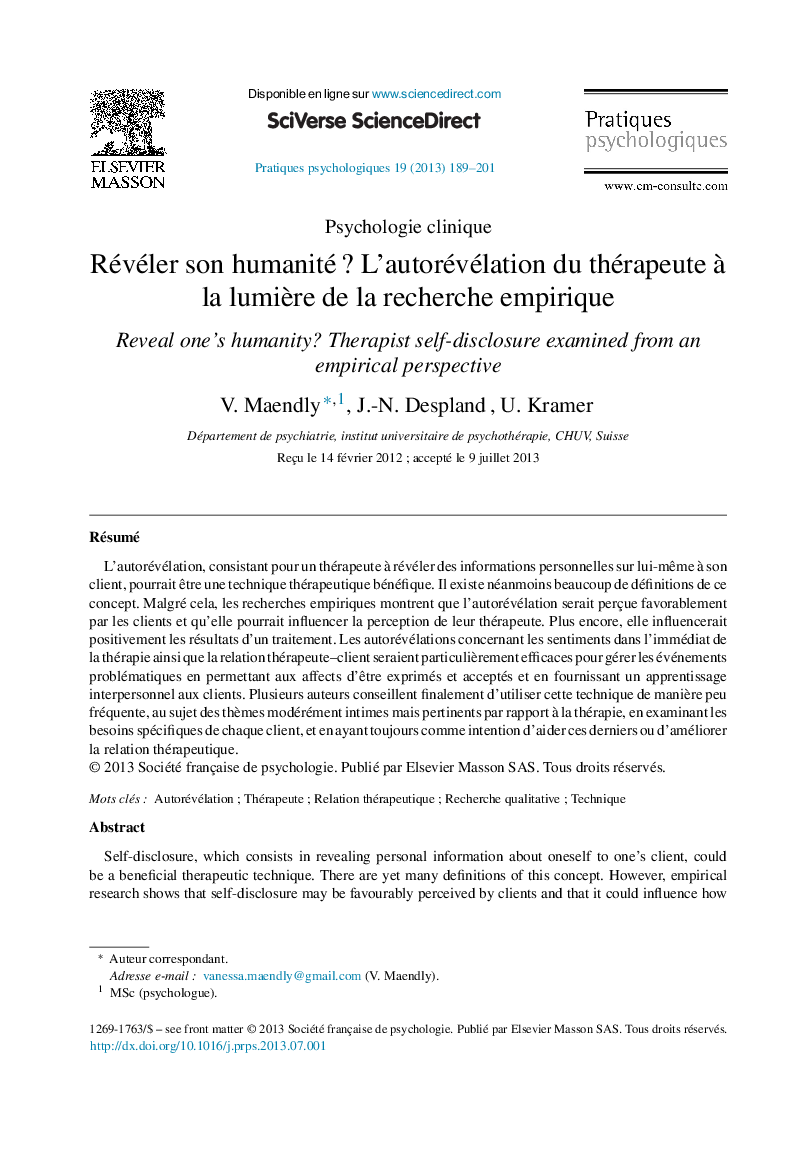| Article ID | Journal | Published Year | Pages | File Type |
|---|---|---|---|---|
| 893703 | Pratiques Psychologiques | 2013 | 13 Pages |
RésuméL’autorévélation, consistant pour un thérapeute à révéler des informations personnelles sur lui-même à son client, pourrait être une technique thérapeutique bénéfique. Il existe néanmoins beaucoup de définitions de ce concept. Malgré cela, les recherches empiriques montrent que l’autorévélation serait perçue favorablement par les clients et qu’elle pourrait influencer la perception de leur thérapeute. Plus encore, elle influencerait positivement les résultats d’un traitement. Les autorévélations concernant les sentiments dans l’immédiat de la thérapie ainsi que la relation thérapeute–client seraient particulièrement efficaces pour gérer les événements problématiques en permettant aux affects d’être exprimés et acceptés et en fournissant un apprentissage interpersonnel aux clients. Plusieurs auteurs conseillent finalement d’utiliser cette technique de manière peu fréquente, au sujet des thèmes modérément intimes mais pertinents par rapport à la thérapie, en examinant les besoins spécifiques de chaque client, et en ayant toujours comme intention d’aider ces derniers ou d’améliorer la relation thérapeutique.
Self-disclosure, which consists in revealing personal information about oneself to one's client, could be a beneficial therapeutic technique. There are yet many definitions of this concept. However, empirical research shows that self-disclosure may be favourably perceived by clients and that it could influence how they perceive their therapist. Moreover, it could positively influence treatment outcome. Self-disclosure about immediate feelings in the therapy and about the therapist–client relationship would be particularly effective in resolving problematic events by enabling feelings to be expressed and accepted and by providing clients with interpersonnal learning. Several authors finally advise using this technique infrequently, about moderately intimate but relevant themes in relation to the therapy, examining each client's specific needs, and always with the intention of helping them or improving the therapeutic relationship.
